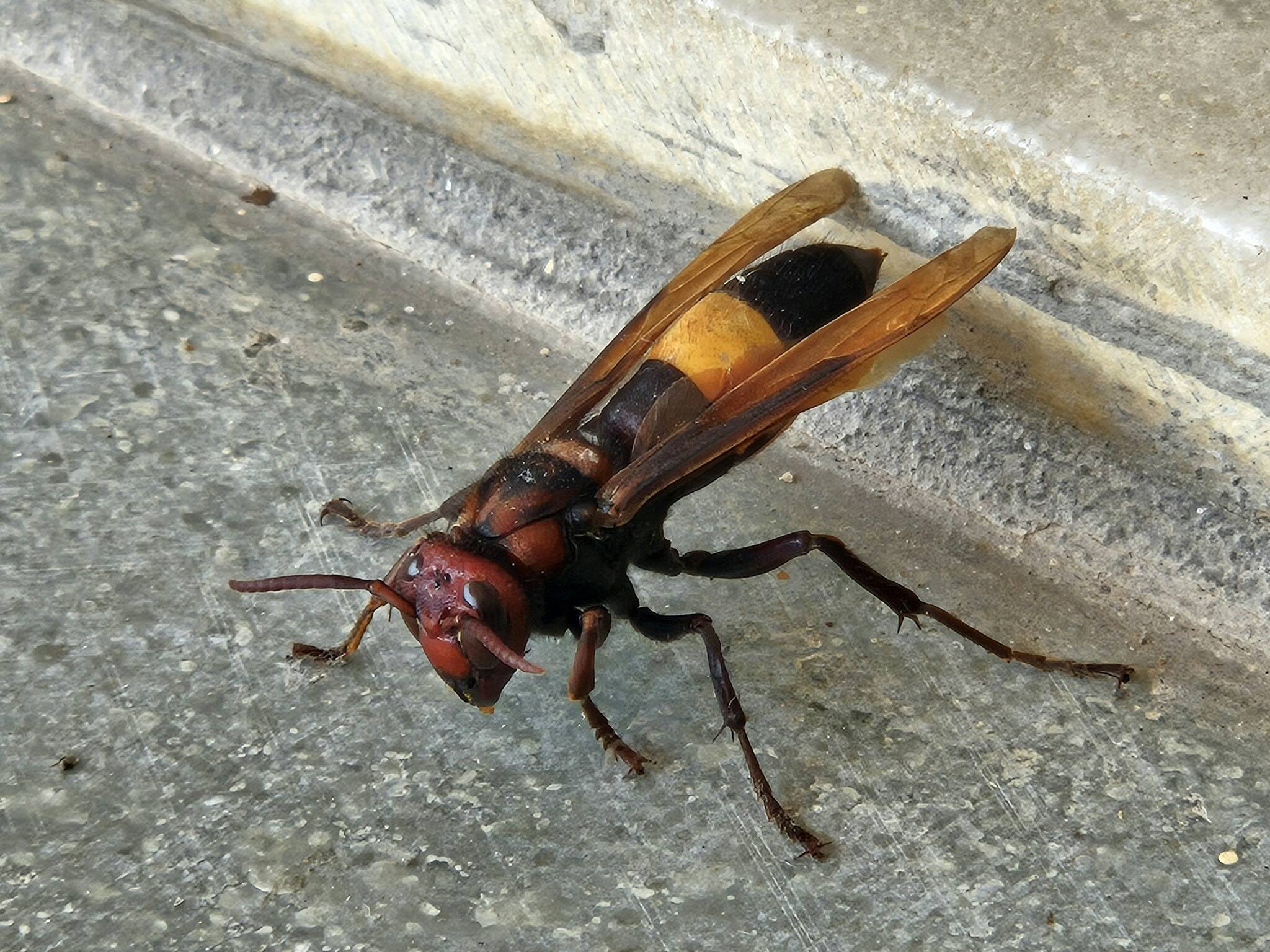By Jacquelyn Jimenez Romero
Washington State Standard
The hunt for invasive “murder hornets” is over in Washington and the rest of the United States after three years without confirmed detections, state and federal officials said Wednesday.
“It is a rare day when the humans actually get to win one against the insects,” said Sven Spichiger, Washington State Department of Agriculture pest program manager.
The insects — more formally known as northern giant hornets — posed a significant threat to honey bees and other native insects in the Pacific Northwest. They can kill an entire hive in as little as 90 minutes by decapitating the bees.
Officials described the search for the hornets as something like a scene out of a movie. Teams captured one of the 2-inch hornets, attached a small tag to the insect and tracked it back to its nest by listening to radio transmitter beeps.
The hornet’s sting also poses a threat to humans as it can penetrate a beekeeping suit and a swarm of stings can be fatal. In 2013, more than 40 people were killed and over 1,000 were injured in China by the insects.
In North America, they were first spotted in British Columbia, Canada, in August 2019 and confirmed in Whatcom County, Washington, in December of that year.
Despite these detections occurring around the same time and location, DNA evidence suggests the hornets found in Washington originated from South Korea while the ones in British Columbia originated in Japan.
Between 2020 and 2021, four nests were spotted inside tree hollows in Washington. This was distinctive, as the hornets tend to nest in the ground.
Spichiger theorized that nesting in trees could have been a trait of the specific hornets that turned up in Washington or a response to flooding at the time they were around.
Eradication efforts, which began in 2019, involved collaboration between state, federal and international government agencies as well as support from community members. Over half of the confirmed detections came from the public, according to Spichiger.
“If the entire community hadn’t stood up and taken action, there is a real good chance that we would just all be living with the northern giant hornet,” Spichiger said.
The state continued trapping efforts through this year in Whatcom County. Despite trapping and continued public outreach, no additional hornets have been detected in the area. The last trap was removed from that part of the state on Dec. 5.
There was a “suspicious hornet sighting,” in Kitsap County, south of Port Orchard, in October, according to the state Department of Agriculture. But this report was based on an image provided by a member of the public and the department was unable to get the hornet.
The department will continue trapping in this area as a precaution until 2025. But so far, trapping and community outreach haven’t yielded any evidence of northern giant hornets in the area, the agency said.
“Although they are now eradicated from the state, we’ll always be keeping an eye out for them and encourage community members to do the same,” Spichiger said. “They got here once and they could do it again.”
See https://washingtonstatestandard.com/2024/12/18/invasive-murder-hornets-found-in-washington-have-been-eradicated-officials-say/.



